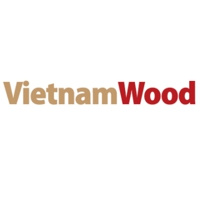- Read all
- Rice
- Fisheries
- Cassava
- Fertilizer & Pesticide
- Coffee
- Animal Feed
- Cocoa
- Seed
- Tea
- Wood
- Pepper
- Agricultural Cooperations
- Cashew
- Agricultural Investments
- Rubber
- Governmental Policies
- Sugarcane
- Agricultural Startup Ecosystem
- Corn
- Technological Innovations
- Spices
- Organic Agriculture
- Bean
- Food Manufacturing
- Fruit & Vegetable
- Agricultural Value Chain
- Flower
- Water & Waste Management
- Meat
- Processed Food
- Dairy
- Plant Originated Products
- General Agro Commodities
- Animal Originated Products
NATIONAL SINGLE WINDOW MECHANISM BENEFITS ENTERPRISES
November 27, 2021
Since the application of the National single window (NSW) mechanism, the customs clearance procedures have become much simplified

Enterprises now do not need to go to the Plant Quarantine Sub-Department of Region IV to carry out the customs clearance procedures. Photo: VDT.
According to Pham Duc Anh, Director of the Plant Quarantine Sub-Department of Region IV (Plant Protection Department) located in Quy Nhon City (Binh Dinh Province), the issuance of phytosanitary certificates to import goods is being conducted virtually on the NSW system by the unit.
Since the application of the service via the online system, 100% of dossiers have been resolved quickly without encountering any backlog.
According to Anh, the Plant Protection Department has an interactive software to receive registration for any procedure, for example, the procedures for import phytosanitary, phytosanitary inspection of food safety, quality control of imported animal feed, or phytosanitary export, to smoothly carry out the above task.
Thanks to the above system, goods importers who want to pay fees via bank transfer do not need to go to the phytosanitary agency for customs clearance.
Customers only need to coordinate with officers from the field department at the port, check and take samples of goods subject to plant quarantine. When the status of the goods has been verified and the certificate has been submitted through the NSW system of the Customs office, the shipment is cleared.
The director said the administrative reform has been implemented smoothly thanks to close and timely instructions of the Plant Protection Department (under the MARD).
Accordingly, the Plant Quarantine Sub-Departments under the Plant Protection Department have reports to update the data monthly, quarterly and annually.
In addition to periodical reports, the departments must also make irregular reports if any problems arise, and if there are problems, the Plant Protection Department will issue directions and handle them promptly.
“Every quarter, the governing body inspects the quality of administrative reform implementation within the NSW mechanism of its affiliated units, checking the frequency of businesses, individuals and organizations participating in the import and export of goods subject to plant quarantine come to the headquarters of the competent authority for work and how the issues are resolved.
“Since the administrative reform has been implemented via the NSW mechanism, the documents are almost instantaneously transferred from the plant quarantine agency to the relevant agencies for customs clearance of goods,” Anh said.
In addition to the application of Laws and Circulars, the Plant Protection Department also has its own guidelines and regulations in implementing administrative reform so that its affiliated units can accelerate the release of consignments that have met phytosanitary requirements.

Reduced import and export procedures due to administrative reform via the National Single Window mechanism have eased the clearance of imported goods in Quy Nhon port. Photo: VDT.
Anh added that the administrative reform still has some small difficulties, especially in terms of transmission lines, meaning that the transmission is blocked at times but the network operator promptly fixes it after that.
In addition, the system at border gates is not synchronized, so online services cannot be performed.
The administrative reform via NSW mechanism has initially shown that the necessary procedures have been reduced, helping to speed up the release of goods while still ensuring the professional requirements of the phytosanitary industry.
All shipments that have met phytosanitary requirements have quickly had their procedures completed faster than before, when paper records were still applied.
In addition, the storage of records and documents has also become more convenient than before. In particular, it helps import and export enterprises to save up a lot of costs while minimising their travel in the context of COVID-19 pandemic.
In the remaining months of 2021, the Plant Quarantine Sub-Department of Region IV will continue to implement the general direction of the Plant Protection Department in the application of administrative reform via the NSW.
Leaders and officers of the Sub-Department are therefore requested to make every effort to perform their tasks properly to create the best possible conditions for the import and export businesses.
Meanwhile, many appropriate solutions must be flexibly applied but must comply with industry regulations in the context of the COVID-19 and necessarily prevent any potential backlog.
Translated by Luong Huong
Related news
-
Growing organic oranges is difficult to do but the price is twice as high
Tuyen Quang In this year's orange crop, organic orange growers in Ham Yen district (Tuyen Quang) earned hundreds of millions of dong in profit because oranges were well priced and accepted by the demanding market.November 24, 2022 -
Heighten Vietnam - USA cooperation relationship through agriculture
(VAN) Through 8 proposals to the new US Agricultural Counselor, Deputy Minister Nguyen Hoang Hiep hoped that trade between the two countries would soon regain its growth momentum.November 23, 2022 -
World wheat prices soar, India seizes export opportunities
India completed deals to export half a million tonnes of wheat in recent days and is expected to sign more contracts to take advantage of record-high global prices.November 22, 2022
Events See more

Vietnamplas 2022 - Vietnam International Plastic and Rubber Industry Exhibition
23-03-2023 - 26-11-2022 09:00 - 17:00
Saigon Exhibition and Convention Center (SECC) – 799 Nguyen Van Linh Boulevard, District 7, City. Ho Chi Minh.

GROWTECH EXPO - FLORAPLANTEXPO 2021
02 - 05-11-2022 09:00 - 17:00
Saigon Exhibition and Convention Center (SECC) – 799 Nguyen Van Linh Boulevard, District 7, City. Ho Chi Minh.

VTG 2022
18 - 25-10-2022 09:00 - 17:00
Saigon Exhibition and Convention Center (SECC) – 799 Nguyen Van Linh Boulevard, District 7, City. Ho Chi Minh.

VIETSTOCK 2022 - SPECIALISED EXHIBITION OF LIVESTOCK, FEED AND MEAT PROCESSING IN VIETNAM
12 - 14-10-2022 08:00 - 17:00
799 Nguyen Van Linh, Tan Phu Ward, Dist. 7, Hochiminh City, Vietnam

VTG 2022
21 - 27-09-2022 09:00 - 17:00
Saigon Exhibition and Convention Center (SECC) – 799 Nguyen Van Linh Boulevard, District 7, City. Ho Chi Minh.
.png)
VIETFISH 2022
22 - 26-08-2022 09:00 - 17:00
Saigon Exhibition and Convention Center (SECC) – 799 Nguyen Van Linh Boulevard, District 7, City. Ho Chi Minh.
Business Opportunities See more
-
BURANI INTERFOOD is looking for Buyers in Vietnam
Type:
November 22, 2021
-
BURANI INTERFOOD is looking for Buyers in Vietnam
Type: Wholesaling Meat
November 22, 2021
-
BURANI INTERFOOD is looking for Buyers in Vietnam
Type: Wholesaling Meat
November 22, 2021
-
BURANI INTERFOOD is looking for Buyers in Vietnam
Type: Wholesaling Meat
November 19, 2021
-
BURANI INTERFOOD is looking for Buyers in Vietnam
Type:
November 19, 2021
-
Indian purchaser looking for high quality cashew nut kernel from Vietnam
Type: Exporting Cashew
Mar 14, 2016
534
Limitless database of qualified and verified agricultural partners
124
Exclusive buy & sell leads on specific agricultural commodities
24
Agricultural events in Vietnam and Asia Pacific region
Stay informed!
Enter your email address below to receive updates each time we publishes new content
